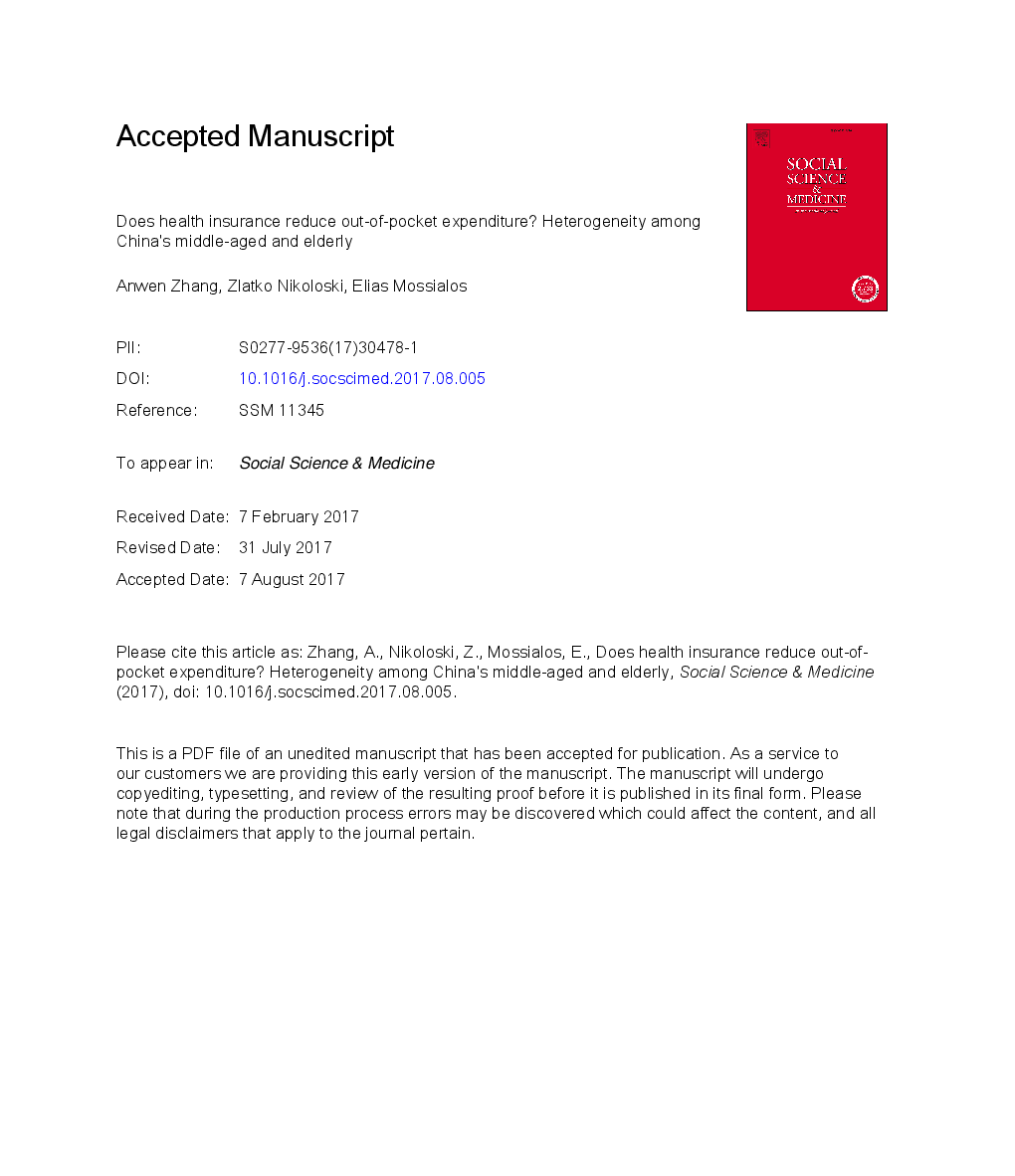ترجمه فارسی عنوان مقاله
آیا بیمه درمانی هزینه های جیب را کاهش می دهد؟ ناهمگونی میان میانسالان و سالمندان چین
عنوان انگلیسی
Does health insurance reduce out-of-pocket expenditure? Heterogeneity among China's middle-aged and elderly
| کد مقاله | سال انتشار | تعداد صفحات مقاله انگلیسی |
|---|---|---|
| 112291 | 2017 | 35 صفحه PDF |
منبع

Publisher : Elsevier - Science Direct (الزویر - ساینس دایرکت)
Journal : Social Science & Medicine, Volume 190, October 2017, Pages 11-19
ترجمه کلمات کلیدی
چین، بیمه سلامت، استفاده از خدمات بهداشتی، هزینه های خارج از جیب مهاجر
کلمات کلیدی انگلیسی
China; Health insurance; Healthcare utilization; Out-of-pocket expenditure; Migrant;

